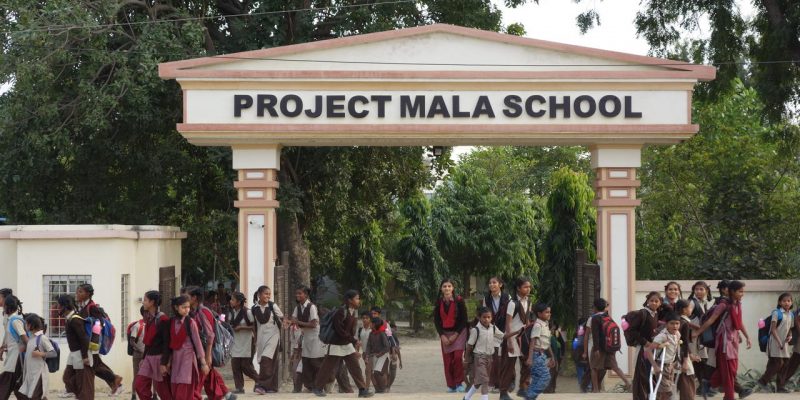When the second national lockdown started in the UK it felt as if this was just the beginning of an endless cycle.
The Coronavirus pandemic has made a lot of global changes all over the world, affecting countries’ economies and most importantly the educational systems.
If the economy has been on the agenda since the start of Coronavirus, the problem of education and how it has been affected has become a huge priority.
In the UK, there has been a lot of challenges that were brought in by the latest restrictions. But at an international level, countries like India have not had it easy either.
The literacy rate in urban India is 85%, with the number of people having access to education in rural areas downgrading by 14%.
For the children in these rural areas, it might feel difficult to go to school, especially during these hard times. This is where a charity called Project Mala comes in to offer help.
Their aim is to seek out working children in remote villages of Eastern Uttar Pradesh, India, and offer them a chance for a better, quality education. The action programme includes pre-school, primary, middle, and secondary school courses, along with college-level too.
Robin Garland, founder and chairman of the action programme shared his opinion on how closing primary schools has affected their work: “It’s been very difficult. We have been giving them a lot of homework so that they could work from home.
“We couldn’t run the schools because the government was telling us we weren’t allowed, and we still aren’t allowed to have primary schools open.”
Even so, he adds that the teachers’ efforts and support made a difference: “Our teachers are local, so they are living in the same villages as the children they’re teaching so we were able to do a little bit more for those in the village environment.”
Following the PM’s recent statement on education, Robin explained how it is vital for a better future: “If you don’t get the early stage of education then you are not going to succeed very well in higher education.
”The government in India are making progress and doing a good job in providing schools for children in rural India, but their work is more difficult than ours as they have to take all children of different ages and ability.
“Their teachers are not as dedicated and if you’re an intelligent bright child in rural India you have no chance of reaching your full ability in a government school.
“Our speciality is that we try to give the gifted, underprivileged children a chance to reach their full potential.”
The lockdown has been a big challenge for all schools but now that they have managed to get the senior schools running again Robin said they are ” just dying to get back to running all the schools as we have been.’’
It might take some time before we see a ray of sunshine. In the meantime, we should keep in mind this one simple but vital message from Robin:
“The children of today are the parents of tomorrow and so the message is going across to them. Once they’re educated, they will want their own children educated because they’ll realise the value of it.
“Life is entirely up to you. Whatever you want in this world, you can get it if you’re prepared to work but the important thing is to work during education. In India, if you’re educated, you have far better chances of earning good money.”


 Party divide adds pressure for Johnson to extend universal credit uplift
Party divide adds pressure for Johnson to extend universal credit uplift